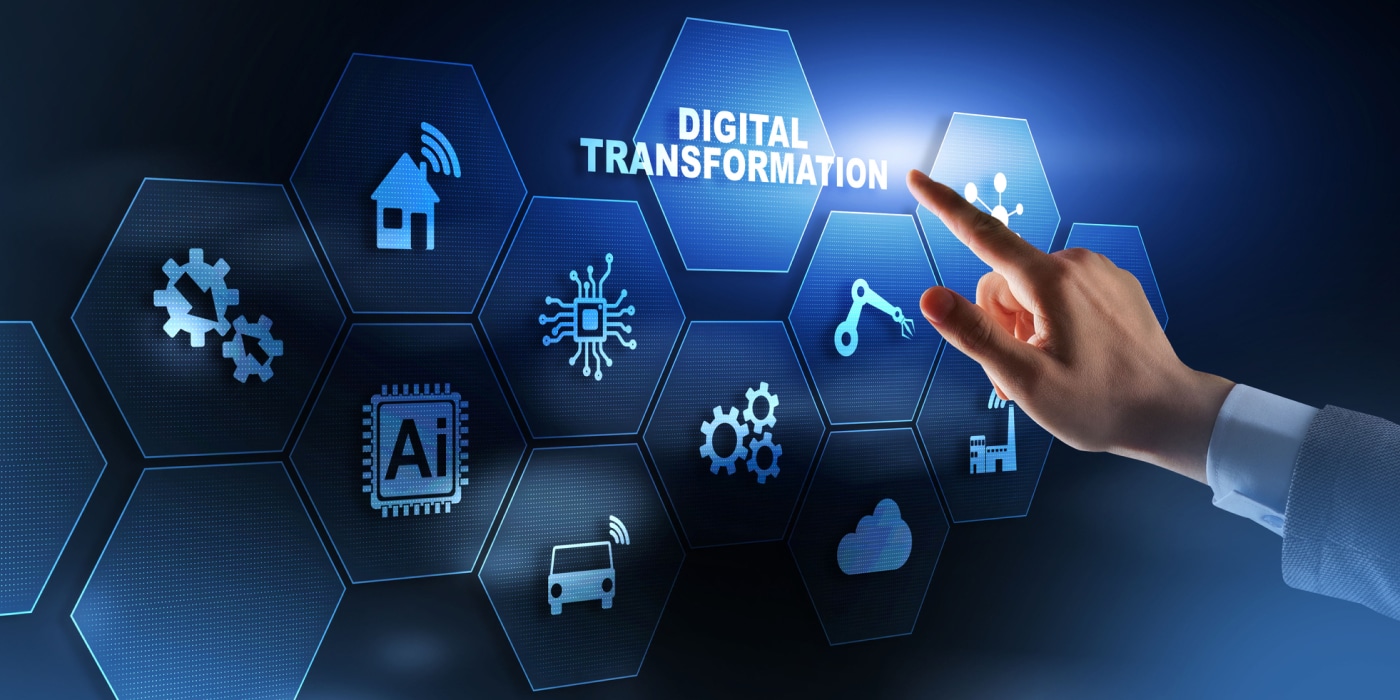How Digital Transformation is Revolutionizing Freight Deliveries
Digital transformation has transformed the way businesses manage their freight operations. The freight industry is traditionally known for its reliance on manual processes and paper-based systems. However, disruptions including eCommerce growth, geopolitical conflicts, and extreme weather events, have emphasized the need for greater efficiency, visibility, and resilience. Seventy-six percent of freight and logistics executives agree that any freight and logistics company not focusing on building digital capabilities will seriously endanger their business.
Seventy-five percent of freight and logistics executives still have a large percentage of analog office administration processes, including processing jobs, warehouse operations and accounting with plans to automate these processes over the next five years, according to a survey from Accenture. Companies are implementing digital technologies to do everything from optimizing logistics and enhancing customer experiences to improving decision-making processes and maximizing resource utilization.
Here’s a look at some ways in which digital transformation is reshaping the freight industry, improving workforce productivity and delivery performance.
Automation of Operations
Digital transformation has enabled automation of various freight operations, reducing reliance on manual processes and streamlining workflows. Automated systems for freight booking, scheduling, tracking, and invoicing improve operational efficiency, minimize errors, and accelerate transaction times. For example, online booking platforms enable shippers and carriers to exchange booking information seamlessly, eliminating the need for manual data entry and reducing booking errors.
Route optimization software calculates the most efficient delivery routes based on factors such as distance, driver skills, vehicle capacity, and delivery deadlines. By optimizing routes in real-time, freight companies can minimize fuel costs, reduce delivery times, and improve fleet efficiency. Warehouse management systems streamline the movement and storage of goods within warehouses. Delivery management solutions allow companies to plan, execute, track, and manage freight deliveries easily from one location.

Real-Time Visibility
Unlike traditional tracking methods that rely on periodic updates or manual reporting, real-time tracking systems provide continuous monitoring and updates. Advanced GPS tracking technologies and IoT sensors allow freight companies to monitor deliveries’ precise locations, conditions, and status throughout the entire supply chain journey. Freight companies and their customers can access up-to-date information on delivery status, estimated arrival times, and any deviations from the planned route or schedule.
By monitoring vehicle locations and delivery statuses in real-time, companies can identify inefficiencies, reduce idle time, and streamline logistics processes. This optimization helps in reducing costs, improving asset utilization, and meeting delivery deadlines more consistently. Freight companies can pinpoint the exact location of goods at any given time. This visibility helps in minimizing delays, optimizing routes, and ensuring transparency throughout the delivery process.
Data-Driven Decision Making
Digital transformation has unlocked the power of data analytics in the freight industry. Freight companies can now collect and analyze vast amounts of data, including delivery volumes, routes, delivery times, and customer preferences. Digital transformation enables freight companies to harness predictive analytics tools that analyze historical data to forecast future trends and outcomes. Predictive analytics can help companies anticipate potential disruptions, optimize resource allocation, and proactively plan for peak periods.
Digital platforms and analytics tools provide freight companies with valuable customer insights, such as delivery preferences, service expectations, and satisfaction levels. By understanding customer needs and preferences, companies can tailor their services and foster long-term relationships. Through data-driven insights, companies can identify inefficiencies in their freight operations, implement improvements, and optimize resource utilization, leading to enhanced productivity and cost savings.

Enhanced Customer Experiences
Digital solutions and mobile apps provide customers with self-service capabilities, delivery tracking, and real-time notifications, reducing the need for manual intervention and phone calls. Through intuitive dashboards, customers can track deliveries in real-time and access historical data for delivery performance analysis. Increased transparency builds trust and confidence, as customers feel more informed and empowered throughout the delivery process.
Digital platforms facilitate personalized communication between freight companies and their customers. Automated alerts, notifications, and personalized messages keep customers informed about their delivery’s progress and any potential issues. Customer feedback collected through digital channels, such as surveys and ratings, provides valuable insights into service quality and areas for improvement. Freight companies can use this information to refine their processes, address customer pain points, and improve the delivery experience.
By embracing automation, real-time tracking, data-driven decision-making, and customer-centric features, freight companies can navigate the complexities of modern supply chains, meet evolving customer expectations, and thrive in an increasingly digital world.
For more information about how our delivery management solution can help you manage your deliveries more efficiently, please contact info@www.bringoz.com.
